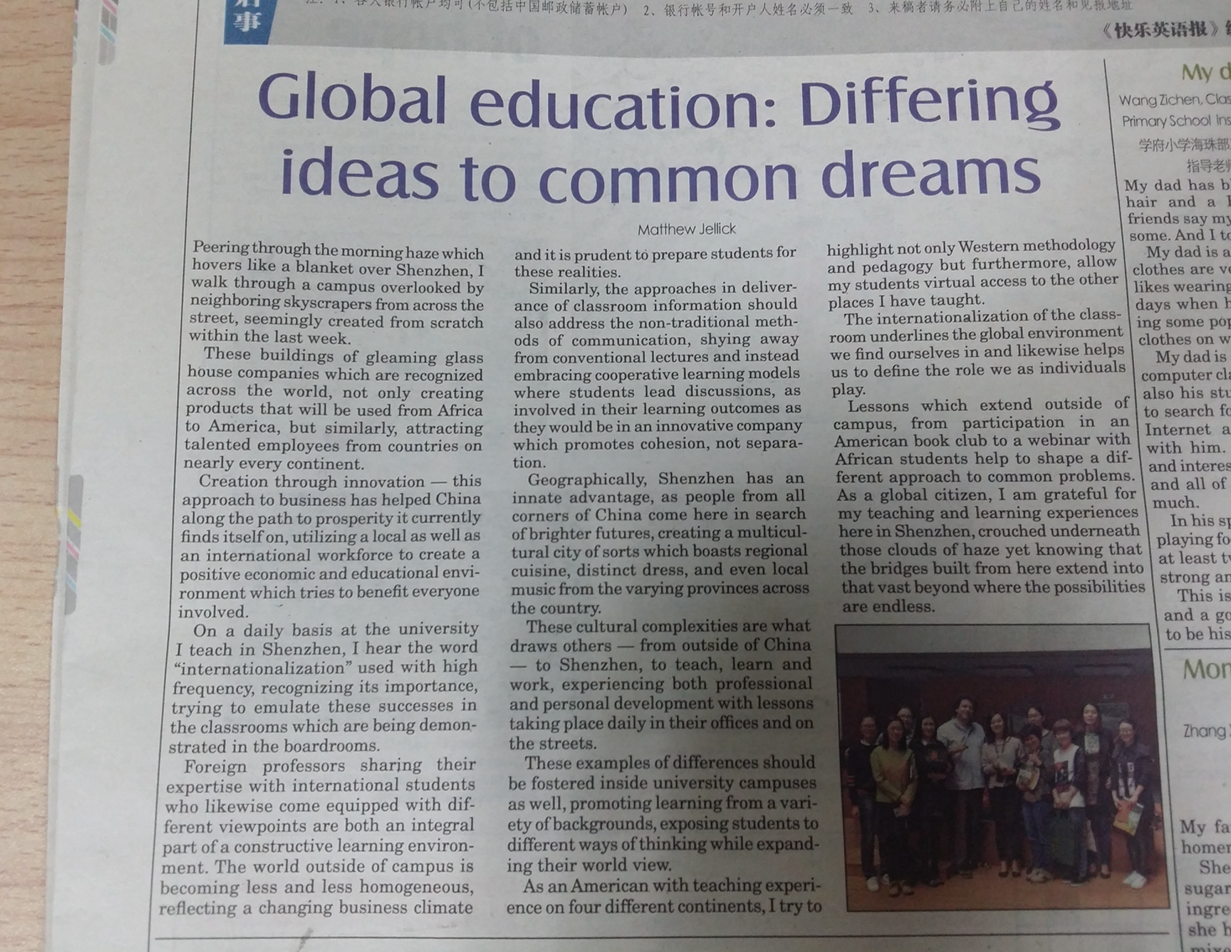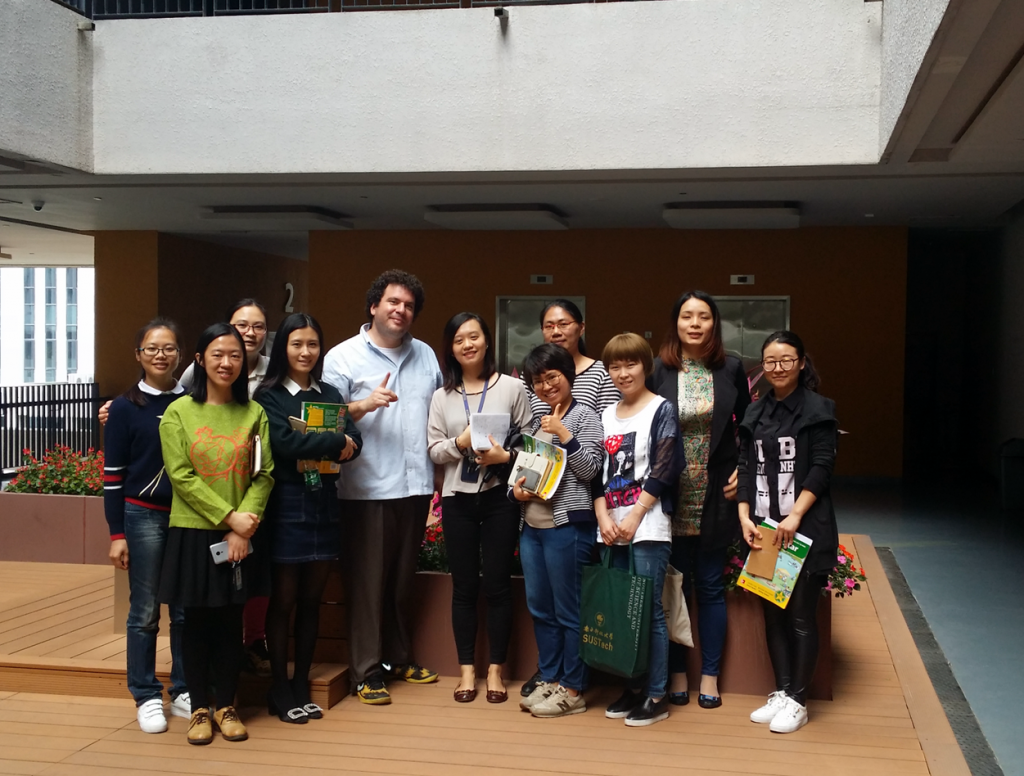
By: Matthew Jellick
Peering through the morning haze which hovers like a blanket over Shenzhen, I walk through a campus overlooked by neighboring skyscrapers from across the street, seemingly created from scratch within the last week. These buildings of gleaming glass house companies which are recognized across the world, not only creating products that will be used from Africa to America, but similarly, attracting talented employees from countries on nearly every continent. Creation through innovation – this approach to business has helped China along the path to prosperity it currently finds itself on, utilizing a local as well as international workforce to create a positive economic and educational environment which tries to benefit everyone involved.
On a daily basis at the university I teach at in Shenzhen, I hear the word “Internationalization” used with frequency, recognizing its importance, trying to emulate these successes in the classrooms which are being demonstrated in the boardrooms. Foreign professors sharing their expertise with international students who likewise come equipped with different viewpoints are both an integral part of a constructive learning environment. The world outside of campus is becoming less and less homogeneous, reflecting a changing business climate and it is prudent to prepare students for these realities. Similarly, the approaches in deliverance of classroom information should also address the non-traditional methods of communication, shying away from conventional lectures and instead embracing cooperative learning models where students lead discussions; as involved in their learning outcomes as they would be in an innovative company which promotes cohesion, not separation.
Geographically, Shenzhen has an innate advantage, as people from all corners of China come here in search of brighter futures, creating a multicultural city of sorts which boasts regional cuisine, distinct dress, and even local music from the varying provinces across the country. These cultural complexities are what draws others – from outside of China – to Shenzhen, to teach, learn, and work, experiencing both professional and personal development with lessons taking place daily in their offices and on the streets. These examples of difference should be fostered inside university campuses as well, promoting learning from a variety of backgrounds, exposing students to different ways of thinking while expanding their worldview.
As an American with teaching experience on four different continents, I try to highlight not only Western methodology and pedagogy but furthermore, allow my students virtual access to the other places I have taught. The internationalization of the classroom underlines the global environment we find ourselves in and likewise helps us to define the role we as individuals play. Lessons which extend outside of campus, from participation in an American Book Club to a Webinar with African students helps to shape a different approach to common problems. As a global citizen, I am grateful for my teaching and learning experiences here in Shenzhen, crouched underneath those clouds of haze yet knowing that the bridges built from here extend into that vast beyond where the possibilities are endless.
Matthew Jellick holds a Master’s Degree in Teaching from the University of Southern California (USC) in Los Angeles, and is currently a lecturer at Southern University of Science and Technology (SUSTech) in Shenzhen. http://www.szdaily.com/content/2017-03/29/content_15777803.htm